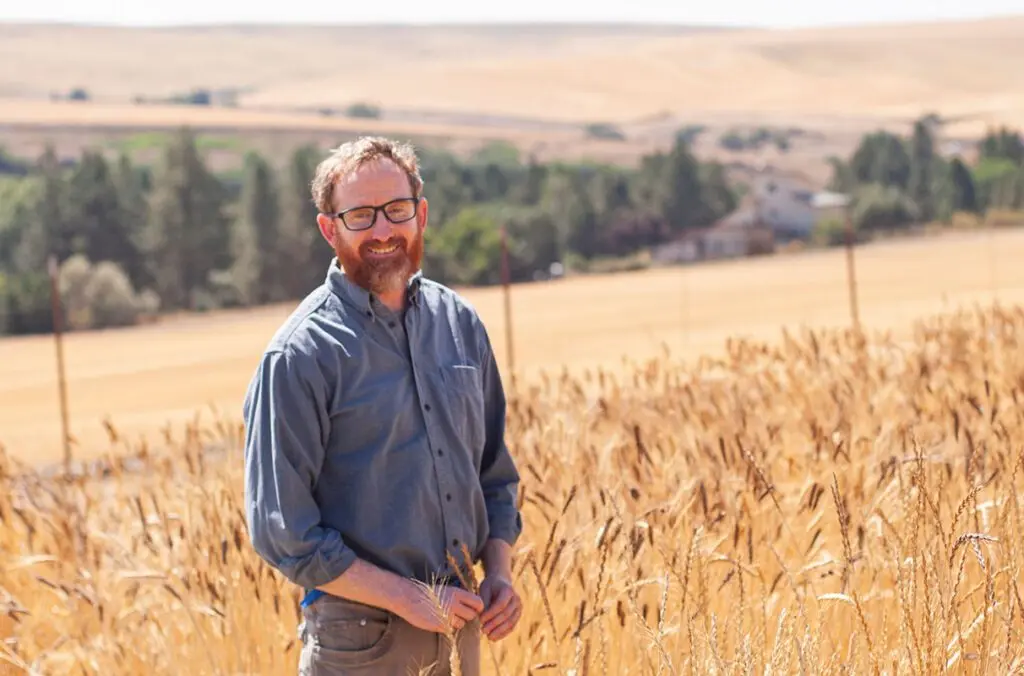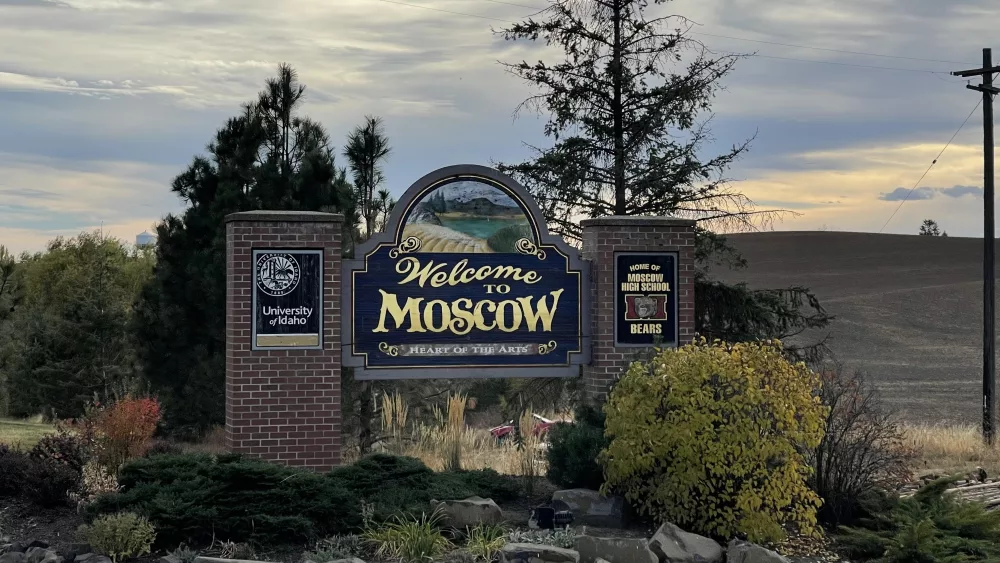PULLMAN, WA — A major Washington State University initiative will receive a $19 million boost to put more healthy, climate-friendly whole grains on people’s plates — funding that will sustain every step in a statewide network from the field to the fork.
The $10 million BioInnovation Grant from the Washington Research Foundation is matched with funds from several other organizations, including more than $3 million from the Washington Grain Commission. The public-private partnership will enable the creation of WSU’s planned Center for Health, Environment, Food and Farming to build and sustain its activities.
The funding will allow WSU researchers to continue developing new crop varieties for farmers. It will fuel efforts to bring more whole grains to the public, including into school lunchrooms. It will expand Washington state’s commercial infrastructure for storing, transporting, milling and marketing whole grains. And it will support the establishment of a commercial kitchen at the University of Washington to help entrepreneurs bring whole-grain foods to market — from pancakes to pizzas to ready-to-eat meals.
It is a comprehensive approach building on 12 years of multidisciplinary work through WSU’s Soil to Society program, which was funded by the U.S. Department of Agriculture. Those efforts have helped identify more nutritious crop varieties of wheat, barley, peas, lentils, quinoa and buckwheat, as well as creating a host of potential food products.
“The timing of the grant is perfect,” said Kevin Murphy, professor of international seed and cropping systems and director of the WSU Breadlab, who will lead the grant work. “We’re right at the stage where we’ve got a critical mass of cross-disciplinary research, encompassing a range of agricultural, food, and health sciences. Now we can start commercializing, getting these crop varieties to farmers, getting whole grains on our plates and into schools.”
The initiative targets a global health problem: the lack of whole grains in people’s diets, which contributes to widespread health problems.

The grant is the largest award ever distributed by the WRF to WSU. WRF is a private, independent organization that supports the development of technologies for public benefit at nonprofit research institutions in Washington state.
“The grant to WSU is a wonderful example of what we are trying to achieve with our BioInnovation Grant program that was initiated last year,” said Loretta Little, managing director at WRF. “We want grantees that are leveraging unique expertise at a state institution to strengthen and advance the state’s life science ecosystem. The program’s emphasis on education and training for students interested in the translation of their innovations is integral.”
Kitchen will move foods to market
The grant will fund work over five years spanning a wide variety of disciplines at WSU — from plant breeding to nutritional science — in collaboration with private and government partners. At the UW, researchers will work to move whole grain-based products toward the market, with the creation of a commercial kitchen available to entrepreneurs, private businesses and others.
UW’s implementation team will examine how innovations in grain breeding and food product development can be successfully adopted in school settings, including what policy, budgetary, and social factors help ensure that new whole grain and legume varieties are embraced across the supply chain and, ultimately, by school-aged children who rely on them for the nutrition they need to grow and thrive.
“This work is about making sure that nutritious grains reach the people who need them,” said Jennifer J. Otten, professor in the UW School of Public Health. “By understanding the policies, systems, and human decisions that shape food production and the supply chain for school meals, we can help bridge the gap between innovation and impact.”
The grant funding will be matched by contributions from the Washington Grain Commission, the USA Dry Pea and Lentil Council, the American Heart Association, The Land Institute, and food and technology companies.
“This is truly a historic investment for Washington farmers,” said Casey Chumrau, CEO of the Washington Grain Commission.

Michael Pumphrey, professor of crop and soil sciences at WSU, said the multidisciplinary nature of the project reflects the intricacy of food production itself.
“That’s the story of our food,” he said. “It involves biology, climate, environment, the underlying genetics, nutrition. Our food system is about the most complex thing we have.”
A key goal will be targeting widespread gaps in the supply chain. Farmers are interested in growing new crop varieties, and health-conscious consumers are increasingly interested in whole-grain foods. But between them are a lot of hurdles, from a lack of basic storage for specialized varieties to the need to prevent rancidity among some grains.
“There’s not a lot of small to medium-scale infrastructure in place for storage, transportation, seed cleaning, de-hulling — all these things,” Murphy said. “Getting all these components of the market supply chain in place is what we need to do to support Washington farmers, make these food products accessible and available to people in the region interested in them.”





